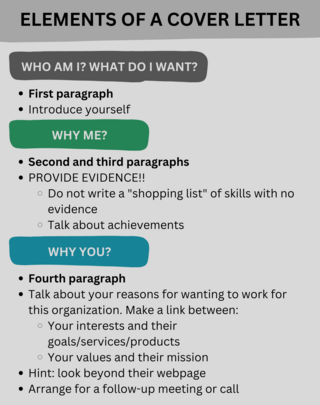This is the last step in the career planning process (many people make the mistake of starting here!)
After you have:
- Identified your skills, interests, and values
- Selected career options that will meet your needs
- Networked with people working in the organizations you are targeting
Then you will be ready to create a strong targeted resume and cover letter. The most common error postdocs make when creating a resume is to forgo tailoring it – it is incredibly important to take the time to examine the position and identify all the skills the employer is looking for – including all the soft skills (communication, teamwork, etc.).
Here is a table that outlines the differences between an academic CV and a resume:

